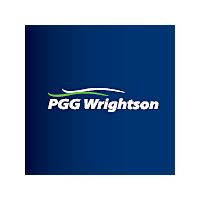
Environmental sustainability at Lawson's Dry Hills winery
The team at Lawson’s Dry Hills are walking the talk when it comes to reducing their impact on the environment.
Earlier this year, they achieved Toitū carbonzero ISO 14064-1 certification which verifies they have measured their greenhouse gas emissions and put in place strategies to manage and reduce their impacts to be carbon neutral.
The operation is also certified ISO 14001 for their environmental management systems, further evidence that they don’t just talk about being eco-friendly and operating sustainably but have put their systems to the test with independent auditing verifying that they take their environmental responsibilities seriously.
“Naturally, we also operate under Sustainable Winegrowing New Zealand (SWNZ) guidelines,” says Senior Winemaker Marcus Wright. “The ISO 14001 programme is broader, looking at our whole operation, while the Toitū carbonzero certification looks specifically at our carbon impact.”
The impact-reducing strategies include utilising solar energy, collecting rainwater, recycling everything possible and considering packaging recycling options before purchasing vineyard and winery inputs.
Solar panels were installed on the winery roof which Marcus says provided at least 30 percent of their power requirements.
“We also catch rainwater from the roof. It has been a particularly wet winter in Marlborough this year, but this water covered about 60 percent of our requirements in the winery and cellar door, reducing the water volume we draw from the aquifer.”
Monitoring water use in the vineyard is another aspect to being mindful of water use. “By measuring the water potential of the vines, we’re able to be more precise with the volume of irrigation water the vines actually need.”
All buying decisions consider packaging. “Can it be recycled or reused in some way? We recycle everything we can. A good example is sending the shrink wrap from new wine bottle pallets to an Auckland company to make slip sheets for bottling. Soft plastics have been challenging but there are more options now and Aaron Thompson, our Fruitfed Supplies Technical Horticultural Representative, has been proactive with the packaging recycling leaflet they produced which we think is great to show others that there are good options for recycling available here and now. Several products have arrived packed in polystyrene so we’ve been able to steer suppliers toward alternatives.”
The goal of reducing environmental impact has the Lawson’s team also looking at vineyard inputs.
“We’re trialling using less glyphosate. It’s a hot topic in Europe with Germany potentially banning its use within their own country by 2023. These changes may eventually impact our ability to use glyphosates and we need to know what our alternatives are.
“Consumers are definitely aware and consider environmental impact as part of their purchasing decisions. Our certification standards are used as a marketing tool so people know there is substance when we talk about sustainability. The certification processes also provide us with an incentive for continuous improvement which drives our business decisions.”
With compliance such a vital aspect of access to most international markets, having an easy process to obtain the documentation they need makes a big difference for the small Lawson’s team. “We don’t have a compliance officer so want to streamline processes as much as possible. Fruitfed Supplies does an amazing job with the material data safety sheets and other documents for winery supplies. These are all available electronically and are easy to access which makes our job easier.”
Raising the awareness of packaging recycling options is something that Fruitfed Supplies’ Aaron Thompson is pleased to be involved with.
Aaron explains: “We’ve had a really good response to the leaflet we created with recycling tips which provides winemakers with helpful information about how they can recycle Erbsloh bentonite bags and shrink wrap, and bulk sugar and perlite bags, all of which are collected by Plasback, one of the key recyclable plastic collection services. Plasback also takes vineyard bird netting and pallet wrapping. Erbsloh liquid containers can go to Agrecovery along with a lot of vineyard ag-chem product containers, and Aakland coordinates pickups from wineries of triple-rinsed containers which held its cleaning products.
“There are some really good options available for wineries looking to reduce waste and we’re pleased to have been able to help share this information. We’re conscious of plastic waste in the environment and there’s going to be more emphasis on this in coming years.”
